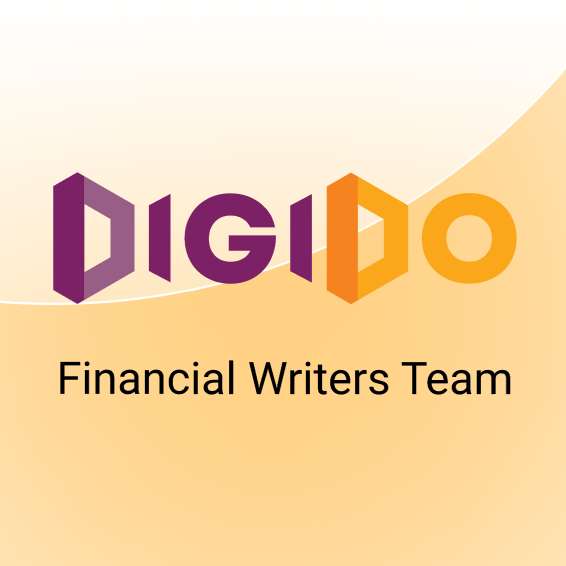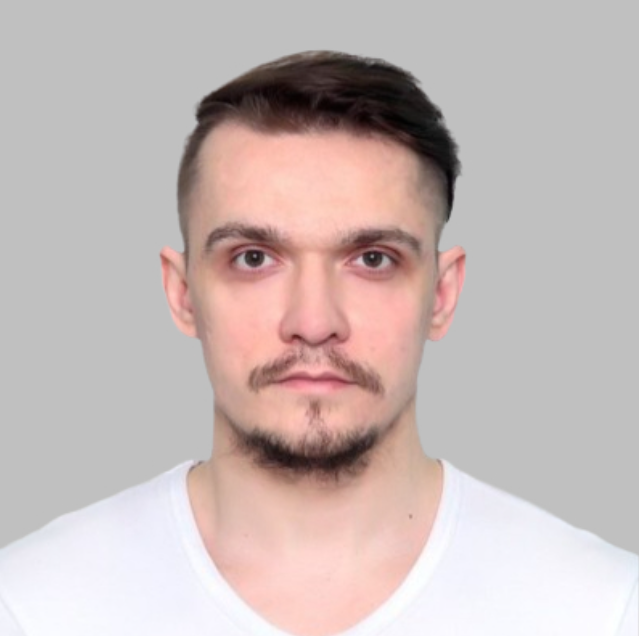What is Early Childhood Education in the Philippines and Why Your Child Needs It
Key takeaways:
- Early childhood education helps children socialize and adapt to the future learning process.
- ECE is provided to children aged 3 to 4 and is not mandatory in the Philippines.
- The ECCD Council establishes preschools, National Child Care centers and home-based programs for children.
- ECE bachelor programs can be partly or fully funded by scholarship programs.
- Digido emits online loans for all purposes including private preschool fees or ECE bachelor tuition payment.
Table of Contents
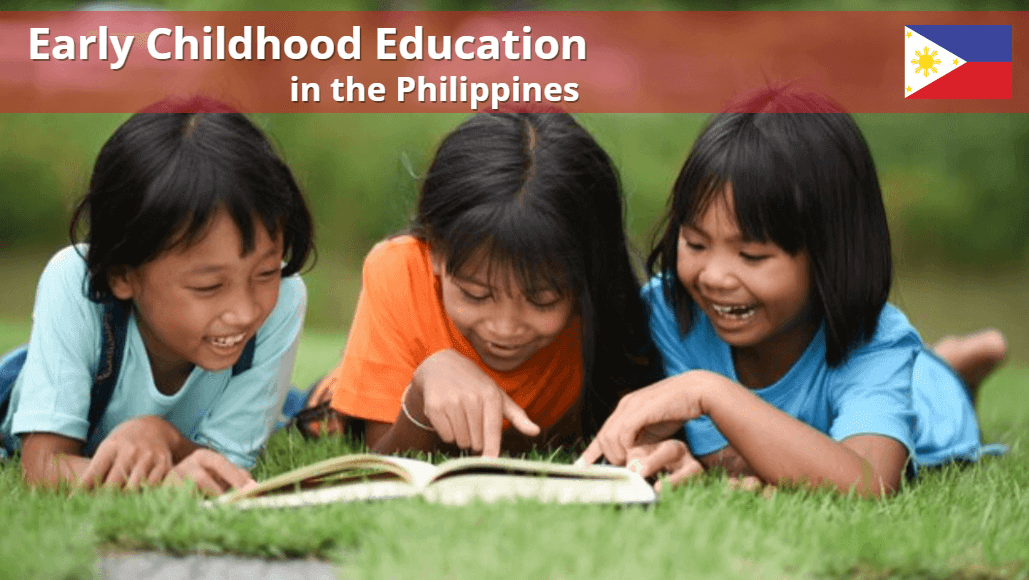
When placed in an unknown and seemingly hostile environment such as school, a young child might feel stressed, peer pressured and may not cope well. To help a child get accustomed to a new situation, there is a transitional period in the educational hierarchy between a family life and a basic secondary education. Early childhood education (ECE) in the Philippines is aimed at helping children from 3 to 4 years develop a wide range of skills necessary for the further education process: processing information, talking, reading, communicating, and expressing themselves in different ways.
The system includes preschool programs and precedes the mandatory kindergarten stage. In this article we will explore various facets of early childhood education in the Philippines: its advantages in helping children, institutional hierarchy, regulatory framework, available private and public programs for training the future educators.
- Borrow money easily with 0% interest
- Get Money Quickly with just One Valid ID
- Digido is a Reliable and Legal Financial Service Provider
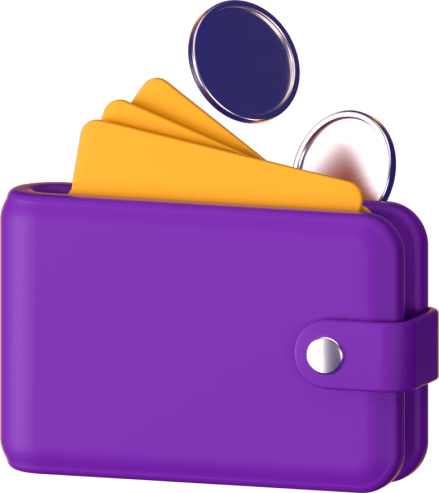
What is the Early Childhood Care and Education System in the Philippines
Early childhood education is a part of the National Early Childhood Care and Education (ECCD) System. This system covers education, health, welfare, and nutrition programs for children aged from 0 to 6. It acts through preschools, National Child Care centers and home-based initiatives.
There are 4 main state departments enacting the Early Childhood Care and Education System in the Philippines: The Department of Health, the Department of Social Welfare and Development, the Department of Education, and The ECCD Council. We have summarized the functions of these departments within the ECCD system in the table below.
| Name | Department of Health (DOH) | Department of Social Welfare and Development | Department of Education | ECCD Council |
|---|---|---|---|---|
| Responsibilities |
|
|
|
|
| Kids’ Age within ECCD | 0 to 5 y.o. | 0 to 4 y.o. | 5 y.o. | 3 to 4 y.o. |
| Public facilities | DOH regional offices | Day care centers, child minding centers, supervised neighborhood play, regional offices | Kindergartens | Preschools, National Child Development Centers (NCDC) |
The Philippine Republic Act 8980: Early Childhood Care and Development Act
The Early Childhood Care and Development System was officially established by the Philippine Republic Act 8980 in 2000 (6). It was signed by the former president Joseph Ejercito Estrada. The document defined the standards of childcare services in the country and declared the rights of children with a complex support from the government.
According to the Philippine Republic Act 8980, the ECCD system should advocate childrens’ equality in health, nutrition, early education, social skills development, and provide a safe environment for their upbringing. The document lays the foundation for early childhood and development programs in local communities and child care centers of the Philippines. The act also includes a commitment to finance the enacting process of the ECCD policy and framework.
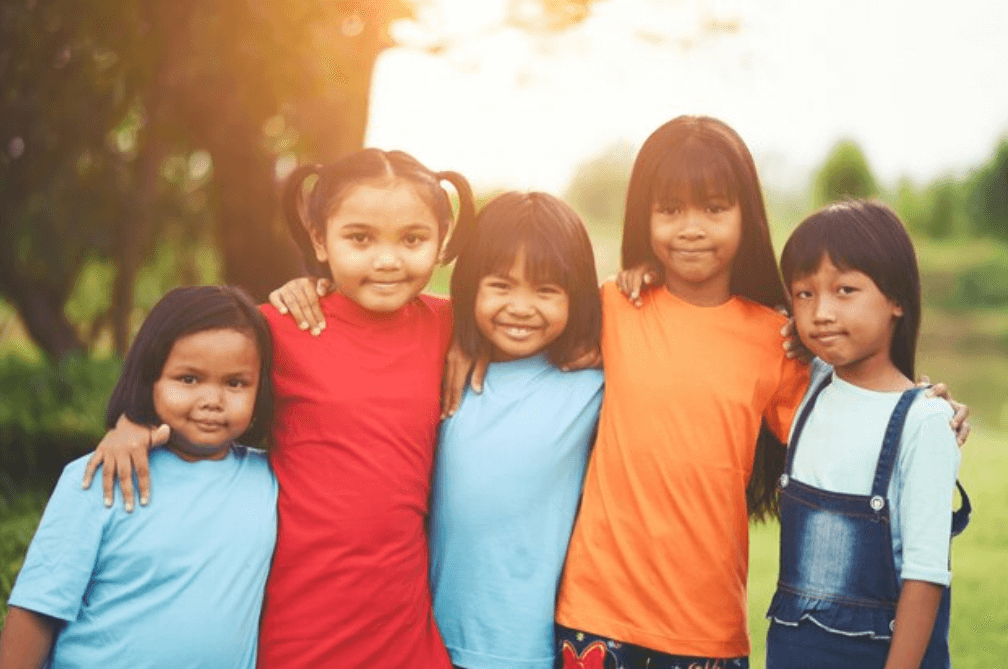
What is the ECCD Council?
The leading state agency responsible for developing a comprehensive early childhood education system in the Philippines is the Early Childhood Care and Development (ECCD) Council. It is linked to the Department of Education and financed by both private and public funds (7).
The ECCD Council transforms childcare centers into child development centers by certifying workers, hiring qualified teachers, providing them with official learning plans and programs. Additionally, parents can apply to the Council if they are searching for a preschool or a childcare center in their area that is available for enrollment.
The Early Childhood Care and Development Council has established numerous national and local child development facilities. According to the Department of Education, there are more than 50 thousand public and private ECCD centers in the Philippines. However, according to the Childcare Investments in the Philippines research by UNRISD, these numbers did not meet the demand in the country. The lacking childcare centers in the Philippines were partly replaced by other forms of early education courses such as the mobile Kindergarten-on-Wheels (KOW) or the home-based Supervised Neighborhood Play.
The ECCD Council still has a lot of work ahead, as around 78% of 3 to 4 year olds are not attending preschools or daycare centers due to their absence in the neighborhood and limited opening hours (8).
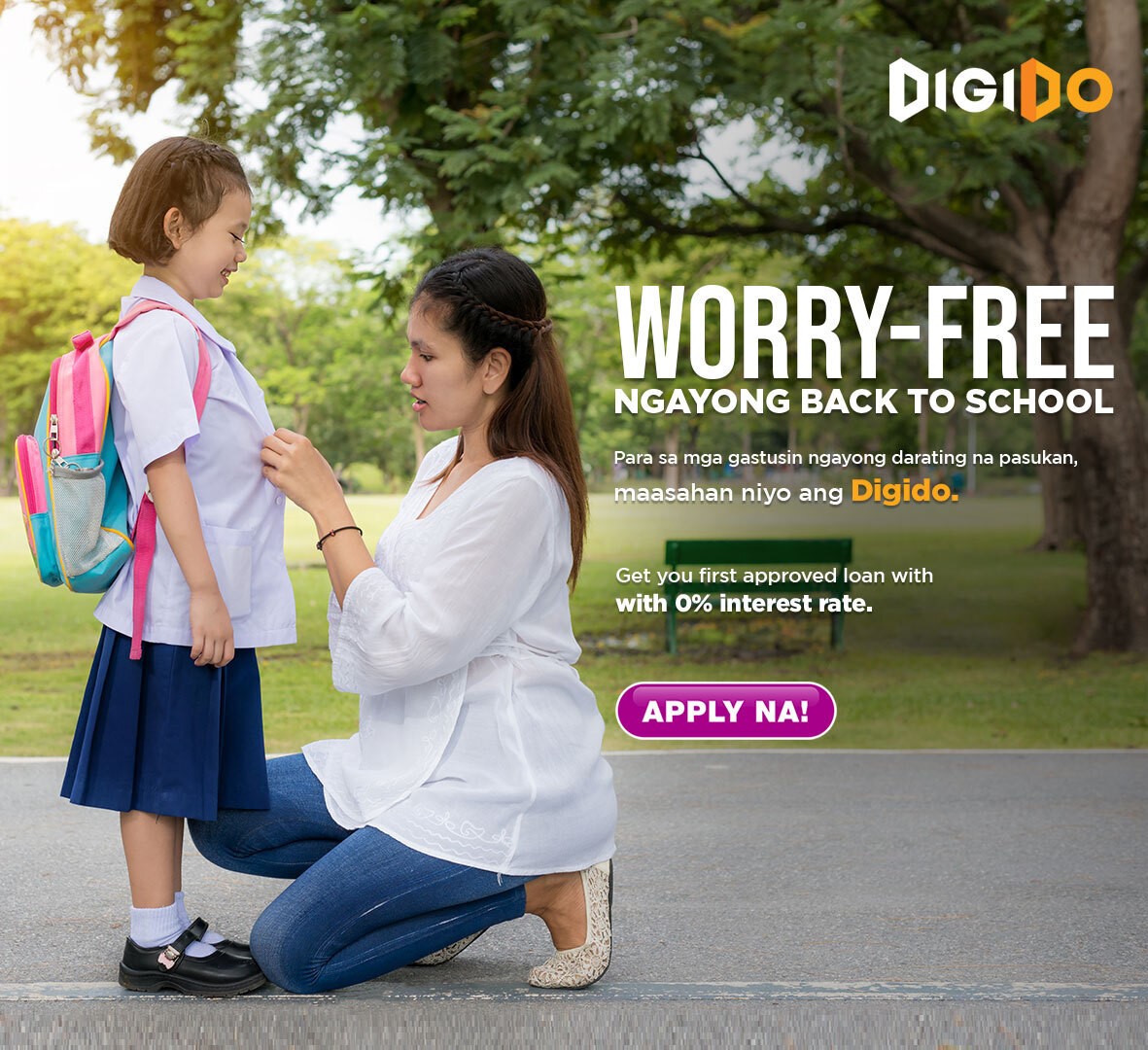
Learn about
Most expensive schools in the Philippines 2024: Grade, High Schools, Universities and Colleges
Advantages of Early Childhood Education in the Philippines
The principle of early childhood education is rooted in the belief that children’s natural activity is play. Starting from a young age, kids learn to read, count, broaden their vocabulary, express themselves and think logically through play. Teachers of early childhood education carefully focus on a child’s psychological growth and social abilities.
Early childhood education includes preparatory school or preschool for children aged 3 to 4, and it is not mandatory. By reaching the age of 5, kids are supposed to go to kindergarten. The Kindergarten Act of 2012 made it the first compulsory level of schooling (2).
Studying in a preschool has a prolonged positive impact on a child’s further academic performance in basic subjects. According to the research,conducted by UNICEF, children who attended preschool programs had a higher score in literacy, math and social skills at school than those who did not (1).
| Preschool attendance | Literacy | Math | Self-awareness, self-management, social awareness, relationship skills, and responsible decision-making |
|---|---|---|---|
| Yes | 697 | 702 | 515 |
| No | 672 | 671 | 486 |
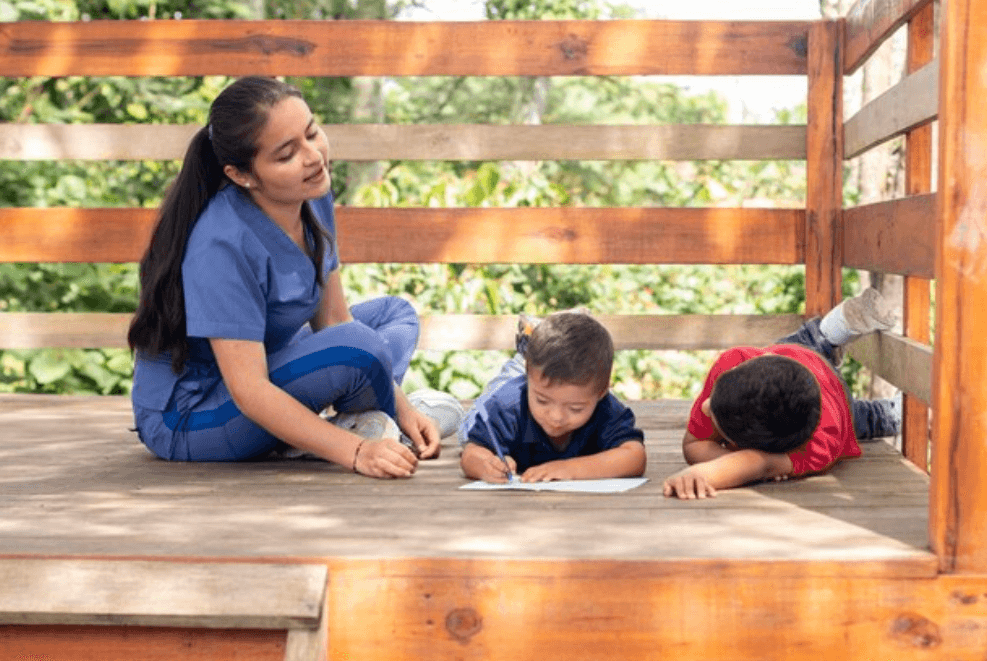
Private Early Childcare Education Programs
Starting from the age of 3, children are admitted to state-funded preschools, while many private preschool programs are open to enroll children from one year old. Here are the main types of paid early education programs and their curriculum highlights.
| Program type | Age | Curriculum examples |
|---|---|---|
| Nursery | From 1 y.o. | Feeding and group activities: arts, exercises, watching movies or cartoons
The day care provides parents with access to 24/7 cameras through a mobile app and sends them daily reports. |
| Toddler | 2 to 3 y.o. | Learning through group activities and songs, assembling puzzles, practicing yoga for kids, counting, doing the Practical Life Exercises (PLE): dressing up, holding spoon and fork, brushing teeth, etc. |
| Preschool | 3 to 4 y.o. | Learning to read and write, developing social skills, preparing for schooling |
Preschool programs are highly in demand as they provide an opportunity to prepare children for the fundamental school subjects and to customize the curriculum according to children’s individual interests. On the other hand, these customized programs remain pricey. We have selected three international preschool education programs in Manila to give you a reference on what the tuition fees are for the school year 2024-2025.
| Preschool Institution | Infant program | Toddler Program | Preschool Program |
|---|---|---|---|
| The Learning Tree Child Growth Centre (3) | $ 1457/month (PHP 80,644) | $ 1435/month (PHP 79,440) | $ 1435/month (PHP 79,440) |
| Nord Anglia International School Manila (4) | PHP 455,734 | PHP 484, 834 | PHP 956,184 |
| Wesleyan College of Manila (5) | No program | PHP 40,000 | PHP 47,800 |
Note that private schools charge extra fees for application, books and uniform, facility upgrades and extra classes such as music and foreign languages on top of tuition payments.
Learn useful information about
DSWD Solo Parent Benefits in Philippines
The Early Childhood Education Specialists in the Philippines
There are two Early Childhood Education minimum qualifications in the country: child development teachers (CDTs) and child development workers (CDWs). A CDT is supposed to have a bachelor’s degree in Childhood Education or Elementary Education. CDWs are required to complete basic education only. Here are the salary rates of both CDTs and CDWs in 2023 (9)
| Position | Child development teachers | Child development workers |
|---|---|---|
| Average salary | PHP 347,232 | PHP 204,924 |
| Highest annual salary | PHP 408,345 | PHP 234,228 |
According to the survey conducted by the ECCD Council, only 49% of childcare workers in the Philippines have a bachelor’s degree. The rest of them are school graduates (17).
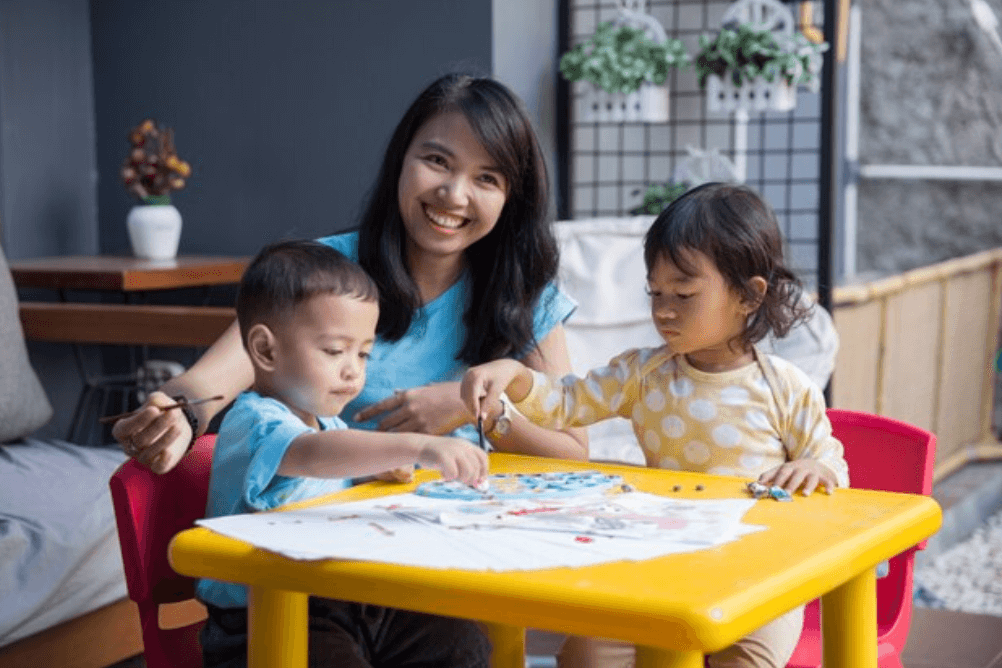
The Early Childhood Education Programs in the Philippines
A typical university program in early childhood education lasts for 4 years. There are also official short courses available to become a specialist in the field.
The National Free Tuition Act provides an exemption for Filipino students enrolled in public colleges, universities, and secondary institutions from paying tuition fees. However, they must pay additional fees for admission, exams and other services.
This regulation isn’t applicable to private colleges and universities. Here are some of the bachelor courses and their conditions.
| University | University of the Philippines Diliman, College of Education (10) | De La Salle University, College of Education (11) | University of Santo Tomas (12) | De La Salle University, College of Education (13) |
|---|---|---|---|---|
| Course | Bachelor of Early Childhood Education (BEED) | Bachelor of Early Childhood Education (BECEd) | Bachelor of Science in Early Childhood Education (BSECE) | Online Certificate in Teaching Early Childhood Learners |
| Program Duration | 4 years | 4 years | 4 years | 8 weeks |
| Curriculum | The key discipline of the course is child psychology, with optional subjects of play therapy, child health and nutrition, rights, etc. | The program is designed for early school education and care specialists for kids of different ages from 0 up to 8 | The course is centered around play practices, education programs management, school culture, family and school partnerships | The course is designed to help people from non-educational environment to get a taste of teaching through seminars on the current teaching approaches and practices |
| Who may enroll | School graduates | School graduates | School graduates | No special requirements |
| Tuition fee | Free | Free | Free | PHP 4,900 (to register) |
| How to apply | Online | Online | Online | Online |
Quick and Easy Loans for Any Purposes! Get the funds you need in just a few minutes via your mobile phone! Calculate your pre-approved loan amount with Digido calculator:
* Interest payments are approximate. The final loan amount and interest rate must be confirmed in your loan agreement after loan approval.
Scholarships for the Early Childhood Education Courses in the Philippines
The shortage of qualified teachers in the Philippines is evident, especially in regional child care centers. Filipino citizens unable to pay the full tuition cost are encouraged to still pursue the profession through a number of scholarships:
| Scholarship program | Amount | Eligibility |
|---|---|---|
| Commission on Higher Education (CHED) Scholarship Program (14) | PHP 15,000 to PHP 30,000 per semester | Filipino school graduates with an annual personal/ family income not exceeding PHP 400,000. |
| Tulong Dunong Scholarship Program (15) | PHP 15,000 per academic year or free college course | Filipino students with low family income |
| Ayala Foundation’s U-Go Scholar program (16) | Discounted tuition fee | Young women from disadvantaged communities aspiring to pursue a higher degree |
To apply for a tuition discount, students must fill out an online form. The committee will then verify all details provided by the applicant. Based on this information, they will make a final decision on the scholarship.
Learn How to
Claim Paternity Benefits 2024 Philippines
Conclusion
Early childhood education for children aged 3 to 4 years plays a significant role in helping them develop everyday habits, self and social awareness, basic skills of reading, writing, counting, creativity, and logical thinking. Hence, the demand for the preschool programs is extremely high. Despite numerous national and local child development facilities established by the ECCD Council, there is still a shortage of child care institutions and professionals in the Philippines.
Learn about
Top 10 Highest Paying Jobs in the Philippines 2024
FAQ
-
What is the difference between early childhood education and basic education in the Philippines?Early childhood education is provided for children under the age of 5 and is not compulsory. Basic education is regarded as mandatory and is for children over 5 years.
-
What does the early childhood education curriculum include?Its primary focus is on developing communication and decision making skills, as well as reading, counting, spatial thinking through exercises and playing.
-
What is the age range for the Philippines early childhood education programs eligibility?ECE programs are designed for 3 to 4 year-olds.
-
What institutions provide early childhood education in the Philippines?They are the Department of Welfare and Social Development and the ECCD Council.
-
What much time does the bachelor early childhood education course program span?You can get a bachelor degree in early childhood education in 4 years.
Articles sources
- 1. Philippines Early Childhood Education: Kindergarten to Grade 4 Longitudinal Research by UNICEF and Australia’s Department of Public Affairs (DFAT)
- 2. Excerpts from the Kindergarten Act on the Department of Education website.
- 3. The Learning Tree Child Growth Centre all-inclusive fees
- 4. Nord Anglia International School Manila
- 5. Wesleyan College of Manila
- 6. Republic Act No. 8980 from Dec 5, 2000.
- 7. The official website of the ECCD council
- 8. UNICEF Press Release by August 23
- 9. Economic Research Institute data on salaries
- 10. University of the Philippines Diliman, College of Education
- 11. De La Salle University - BECEd course
- 12. University of Santo Tomas - BSECE course
- 13. Online Certificate Program in Teaching Early Childhood Learners
- 14. CHED Scholarship Program
- 15. Tulong Dunong Scholarship Program
- 16. Ayala Foundation
- 17. The Childcare Investment in the Philippines research, conducted by the United Nations Research Institute for Social Development
Authors
Digido Reviews
-
RosaI needed money to pay for my child's first year of preschool education in the Philippines. Thanks to Digido, I was able to quickly address this financial concern and provide my child with access to the education they deserve. The loan application process was straightforward, and I was surprised at how quickly I received the necessary funds. I'm grateful to Digido for their support!5
-
MariaI was in a tight spot when I needed funds for my child's early childhood education in the Philippines. That's when I discovered Digido. Their straightforward application process and the fact that they offer loans with 0% interest for first-time borrowers made it a lifesaver. Thanks to Digido, I could secure the funds I needed in no time, ensuring that my child's education remains a top priority.5
-
Sofia S.I stumbled upon Digido's mobile app when I found myself in need of financial assistance to support my child's early childhood education in the Philippines. Now, I use their app actively, and after my second loan, they unlocked the opportunity for me to receive up to 25000 directly into my account without any document hassles!4


